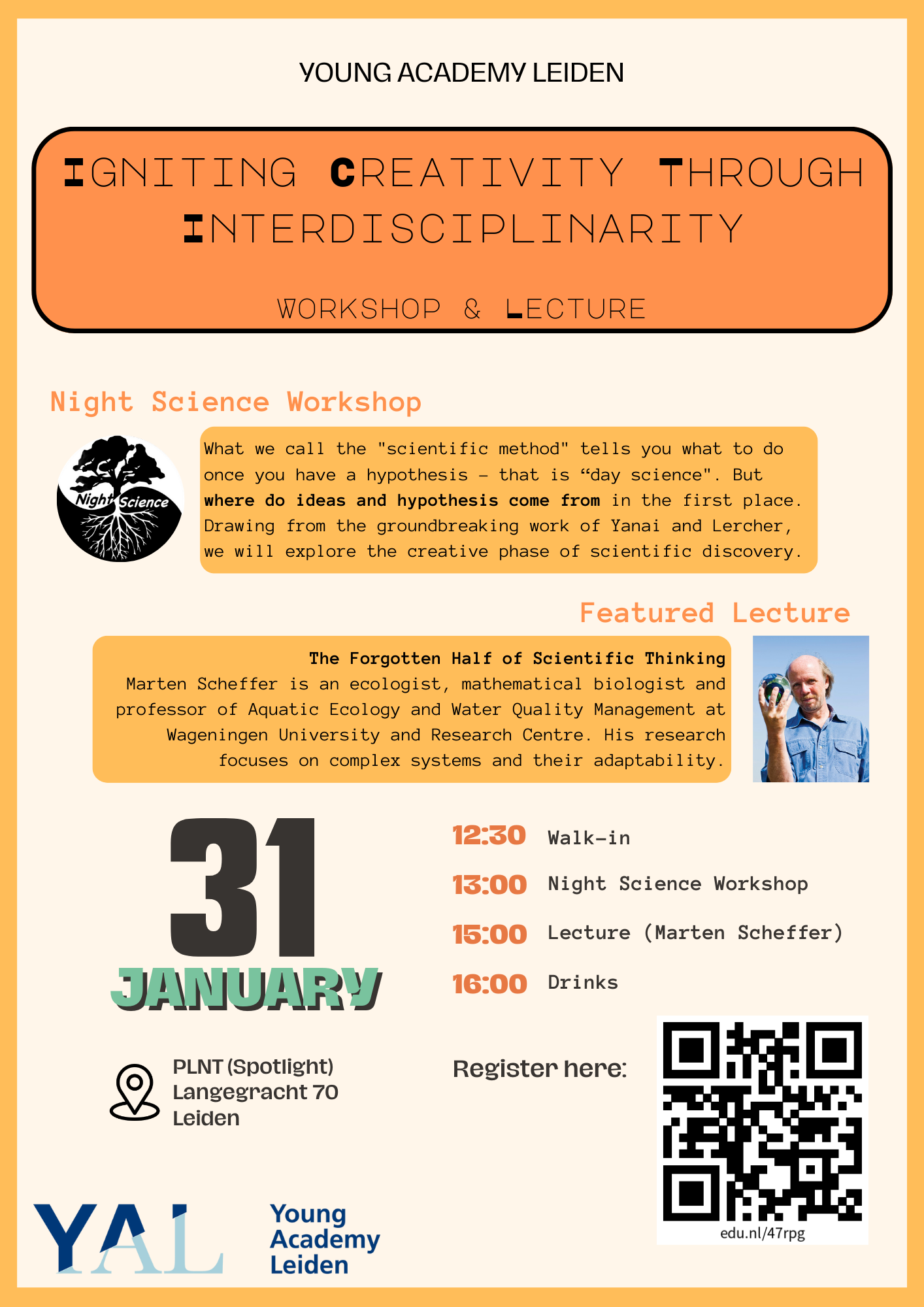ALSO FOR STUDENTS
Join the Young Academy Leiden for an exploration of scientific creativity and discovery through the lens of "night science"—the lesser-known yet crucial creative phase of scientific inquiry. This unique event combines an interactive workshop with an illuminating lecture to reveal how interdisciplinary thinking sparks scientific breakthroughs.
Part 1 (Workshop): The Art of Night Science
Drawing from the groundbreaking work of Yanai and Lercher, participants will explore the creative phase of scientific discovery. Through guided exercises, you'll experience how:
- Intuitive exploration and "night science" complement traditional methodical approaches
- The dynamic interplay between data and hypotheses
- Improvisational thinking leads to unexpected scientific insights
- Cross-disciplinary perspectives generate novel research questions
Part 2 (Featured Lecture): The Forgotten Half of Scientific Thinking (Marten Scheffer)
Originality is a prerequisite for world-changing science and arts alike, but it cannot be taught. He will show that a set of habits that are –surprisingly- shared among successful artists and scientists may catalyse creative output. There are three groups of such habits, each corresponding to a cluster of personality traits, shown to be shared by creative artists and scientists. The first habit group ‘embrace the unexpected’ corresponds to the character trait ‘openness to new experiences’ and encompasses tendencies to go ahead without a plan, collect diverse experiences and take risk. The second group ‘create conditions for creation’ links to personality trait ‘autonomous’ and encompasses simple habits such as making empty time and carrying a notebook. The third class of habits ‘break away from dogma’ links to the shared personality trait ‘norm-doubting’ and stands for a strong drive to escape from established systems and also occasionally destroy part of one’s own work to break tunnel vision and start anew. Although personality traits are hard to change, the habits we found hint at techniques or skills that may be taught.
Programme:
12:30 – Walk-in
13:00 – Night Science Workshop
15:00 – Lecture by Marten Scheffer
16:00 – Drinks
About the Speaker
Marten Scheffer is a Dutch ecologist, mathematical biologist and professor of Aquatic Ecology and Water Quality Management at Wageningen University and Research Centre. He was a winner of the 2009 Spinoza Prize. His research focuses on complex systems and their adaptability.

